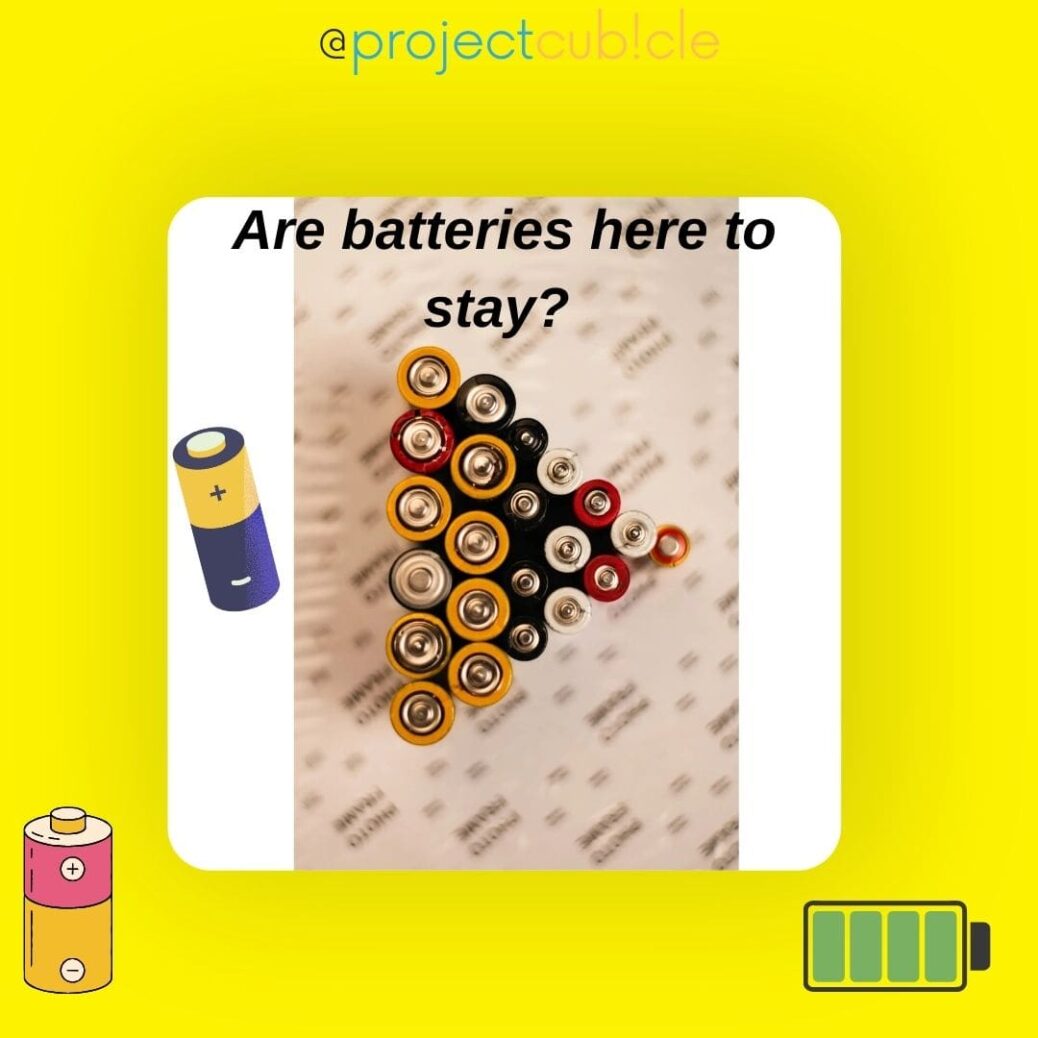Are batteries here to stay?
We generally know that all the time that batteries are better. There are the batteries in power tools, where contractors can move around jobsites easily. There are the ones used in electric vehicles, which are set to be the future of driving once the diesel and petrol ban comes into force in 2030. But what is it about future of battery technology that sets them apart and what is the future of batteries? And will we depend on them in the future? Read on to find out.
Table of Contents
The rise of the battery
Batteries have been around for centuries. They were first invented in 1800 and were the main source of electricity before the electrical grid and electrical generators came along.
It’s interesting, then, that we’ve almost come full-circle, trying to move away from mains electricity and towards battery-operated devices after swapping things out for this alternative power source.

However, batteries have come a long way since their early incarnations. Some of the lithium-ion ones used in electric vehicles are advanced and powerful enough to take in 200-mile motorway journeys, while those used in smartphones are becoming increasingly intricate.
Even the everyday batteries found in common appliances, such as AA ones for remote controls and C batteries in cameras and toys are more advanced than ever before.
The future of batteries
Research into the power that batteries can harness continues even all these years on from their first inception. Although the battery itself hasn’t moved forward in decades, there are some ideas in the works that could change the way we see the humble battery.
For instance, while car batteries are considered more eco-friendly than traditionally fuelled motors, there’s the issue of cobalt in the lithium-ion batteries used in electric vehicles. This poses a problem because it’s expensive, which pushes the price of the battery up, and it poses a fire risk.
Therefore, when China-based SVOLT announced in 2021 that it had created cobalt-free batteries, the industry took note. This cobalt-free battery pack could, according to SVOLT, reach 82.5KWh of electricity and an energy density of 170Wh/kg, offering 373 miles-worth of power under normal temperatures.
And bendable batteries could become part of our everyday world. A paper-like battery has been developed to slot into bendable or curved gadgets. This foldable battery – the Jenax J. Flex battery – has been tested and is designed for smart watches, fitness bands and other everyday items.
Future of batteries and technologies
A solid-state battery
In comparison to conventional lithium-ion batteries, solid-state batteries have the potential to provide greater energy density, quicker charging, and increased safety. Because they don’t utilize a liquid electrolyte, solid-state batteries don’t have to worry about leakage or fires. They can store more energy in the same amount of area due to their high energy density. The development of solid-state batteries is still in its infancy, and there are still numerous obstacles to be addressed, such as enhancing their endurance and lowering their manufacturing costs.
A flow battery
Two tanks of liquid electrolytes are in a rechargeable battery refers to a flow battery. It has a seperate membrane. By simply adding extra electrolyte, flow batteries’ capacity may be get larger. They can be charged and discharged endlessly without losing capacity. And they have a longer lifetime than conventional batteries. Large-scale energy storage applications, such grid-scale energy storage and backup power systems, currently make use of flow batteries and future of batteries can benefit form it.
Sodium batteries
A novel battery of sodium-ion battery has the potential to replace lithium-ion batteries with one that is more affordable and environmentally friendly. Because sodium is cheap and abundantly accessible, sodium-ion batteries are more cost-effective and preferrable than lithium-ion batteries. They can store a lot of energy in a short amount of area due to their high energy density and seems promising for the future of battery technology. The development of sodium-ion batteries is still in its early stages, and there are still numerous technological obstacles to tackle. Such as enhancing their cycle life and longevity.
Batteries made of lithium-sulfur
In comparison to lithium-ion batteries, lithium-sulfur batteries have the potential to provide better energy density at a cheaper cost. Lithium anode and sulfur cathode, which are both lightweight and accessible materials, are in lithium-sulfur batteries. They can store more energy in the same amount of area. Because they have a greater theoretical energy density than lithium-ion batteries. But as lithium-sulfur batteries are still in their infancy. There are still a lot of obstacles that need solutions. Including raising their cycle life and lowering their self-discharge rate.
Utilizing and recycling batteries
There is a need for sustainable end-of-life solutions as battery use expands. Batteries can recycle and work with new purposes as potential answers to this issue. Recovering valuable components from old batteries. Such as lithium, cobalt, and nickel, so they may be useful again in the creation of new batteries is recycling. Utilizing old batteries for other purposes, such as energy storage or backup power systems, refers to repurposing.
What next: future of batteries?
The batteries we use every day are here to stay. But as technology advances, we’re set to see more innovations on the market in the years to come. Battery power remains a useful alternative to the fossil fuels we’ve come to depend on. In conclusion, new technologies that potentially provide better energy density, quicker charging, enhanced safety, and cheaper cost compared to conventional batteries are on the horizon. These technologies offer a lot of promise for a future with cleaner and more sustainable energy, even if they are still in the early phases of research.

Vice President, İntelligent Design & Consultancy Ltd
Over 12 years of global & rich experience in Portfolio & Program Delivery Management in leading & managing IT Governance, PMO, IT Portfolio/Program, IT Products, IT service delivery management, Budget Management, and more.










